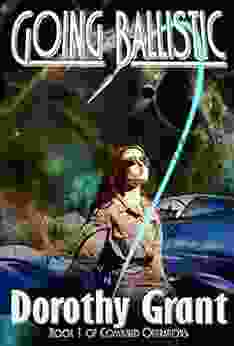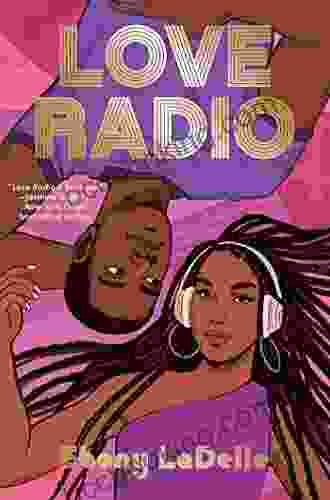Lying Sam Harris: Exposing the Intellectual Dishonesty and Misguided Thinking Behind His Bestselling Book

Sam Harris, a self-proclaimed neuroscientist and philosopher, has gained widespread recognition for his provocative and controversial book, "Lying." In this book, Harris argues that morality is based on objective truths derived from neuroscience and that we have a duty to speak the truth at all times, regardless of the consequences. While Harris's claims have generated considerable buzz, a critical analysis reveals numerous flaws, inconsistencies, and potentially dangerous implications in his argument.
4.4 out of 5
| Language | : | English |
| File size | : | 337 KB |
| Text-to-Speech | : | Enabled |
| Screen Reader | : | Supported |
| Enhanced typesetting | : | Enabled |
| X-Ray | : | Enabled |
| Word Wise | : | Enabled |
| Print length | : | 83 pages |
Questionable Scientific Basis
Harris's central premise that morality can be reduced to objective truths derived from neuroscience is highly questionable. Neuroscience, as a scientific discipline, focuses on studying the structure and function of the brain. While it can provide insights into the neural correlates of moral judgment, it cannot provide a definitive or comprehensive account of what constitutes "right" or "wrong." Moral values are shaped by cultural, social, and historical factors that are beyond the scope of neuroscience.
Oversimplification of Morality
Harris's portrayal of morality as a simple and straightforward matter of adhering to objective truths is an oversimplification. In reality, moral dilemmas often involve complex trade-offs and conflicting values. The choice between telling the truth and protecting someone's privacy, for example, is not always clear-cut. Harris's absolutist approach fails to acknowledge the nuances and complexities of moral decision-making.
Disregard for Context
Harris's insistence on speaking the truth at all times, without regard to context, is both impractical and potentially harmful. There are situations where lying can be justified to prevent serious harm or protect vulnerable individuals. For instance, lying to someone who seeks to use information for malicious purposes may be necessary to safeguard public safety.
Underestimation of the Social Consequences of Lying
Harris's book largely ignores the social consequences of lying. While he argues that honesty is always the best policy, the truth can often be hurtful and destructive. In some cases, withholding or modifying the truth may be necessary to maintain social harmony and prevent unnecessary conflict or distress.
Dangerous Applications
Harris's ideas raise serious concerns about their potential applications. His absolutist stance on truth-telling could be used to justify harmful practices, such as outing someone's sexual orientation against their will or revealing confidential information that could put individuals at risk. The book's emphasis on objective morality could also be used to legitimize discrimination and oppression under the guise of scientific truth.
Sam Harris's book, "Lying," presents a flawed and misleading account of morality. Its questionable scientific basis, oversimplification of moral dilemmas, disregard for context, underestimation of social consequences, and potential for dangerous applications should raise concerns for anyone interested in ethical decision-making and social justice. A critical examination of Harris's arguments reveals the need for a more nuanced and context-sensitive approach to lying and morality.
4.4 out of 5
| Language | : | English |
| File size | : | 337 KB |
| Text-to-Speech | : | Enabled |
| Screen Reader | : | Supported |
| Enhanced typesetting | : | Enabled |
| X-Ray | : | Enabled |
| Word Wise | : | Enabled |
| Print length | : | 83 pages |
Do you want to contribute by writing guest posts on this blog?
Please contact us and send us a resume of previous articles that you have written.
 Book
Book Novel
Novel Page
Page Chapter
Chapter Text
Text Story
Story Genre
Genre Reader
Reader Library
Library Paperback
Paperback E-book
E-book Magazine
Magazine Newspaper
Newspaper Paragraph
Paragraph Sentence
Sentence Bookmark
Bookmark Shelf
Shelf Glossary
Glossary Bibliography
Bibliography Foreword
Foreword Preface
Preface Synopsis
Synopsis Annotation
Annotation Footnote
Footnote Manuscript
Manuscript Scroll
Scroll Codex
Codex Tome
Tome Bestseller
Bestseller Classics
Classics Library card
Library card Narrative
Narrative Biography
Biography Autobiography
Autobiography Memoir
Memoir Reference
Reference Encyclopedia
Encyclopedia Tanja Jung
Tanja Jung William Joseph Hill
William Joseph Hill Shel Banks
Shel Banks Wendy Hollender
Wendy Hollender Tony Guerra
Tony Guerra Sarah Beth Durst
Sarah Beth Durst Jean Sasson
Jean Sasson Veronica Jeans
Veronica Jeans Simon Proudman
Simon Proudman William Hertling
William Hertling Vernon G Zunker
Vernon G Zunker Stacy Tornio
Stacy Tornio Wilbur Smith
Wilbur Smith Webster Edgewood
Webster Edgewood Suzuki Aika
Suzuki Aika Virgil Royer
Virgil Royer Vladimir Bukovsky
Vladimir Bukovsky Stanley I Greenspan
Stanley I Greenspan Victor Steffensen
Victor Steffensen Who Hq
Who Hq
Light bulbAdvertise smarter! Our strategic ad space ensures maximum exposure. Reserve your spot today!

 Harvey HughesUnlock Your English Fluency with "The Big Book of English Expressions and...
Harvey HughesUnlock Your English Fluency with "The Big Book of English Expressions and...
 Vladimir NabokovLancelot and the Lord of the Distant Isles: A Spellbinding Adventure in the...
Vladimir NabokovLancelot and the Lord of the Distant Isles: A Spellbinding Adventure in the... Dan BellFollow ·14.5k
Dan BellFollow ·14.5k Ricky BellFollow ·9.7k
Ricky BellFollow ·9.7k Eric NelsonFollow ·8.7k
Eric NelsonFollow ·8.7k Pete BlairFollow ·17.3k
Pete BlairFollow ·17.3k Ervin BellFollow ·7.2k
Ervin BellFollow ·7.2k Cruz SimmonsFollow ·2.4k
Cruz SimmonsFollow ·2.4k Robert ReedFollow ·19.6k
Robert ReedFollow ·19.6k George HayesFollow ·2.8k
George HayesFollow ·2.8k

 Amir Simmons
Amir SimmonsImmerse Yourself in the Enchanting Realm of Nora Roberts'...
Prepare to be captivated by...

 Dan Henderson
Dan HendersonUnleash the Explosive Action of Going Ballistic Combined...
Prepare for an...

 Jeffery Bell
Jeffery BellDiscover the Controversial and Captivating "The Anarchist...
In the realm of literature, there are...

 Ryan Foster
Ryan FosterUnveiling Lincoln's Eloquence: How His Greatest Speeches...
In the annals of American...

 Jaime Mitchell
Jaime MitchellLove Radio Vinny Berry: A Journey of Heartbreak, Healing,...
Vinny Berry's...
4.4 out of 5
| Language | : | English |
| File size | : | 337 KB |
| Text-to-Speech | : | Enabled |
| Screen Reader | : | Supported |
| Enhanced typesetting | : | Enabled |
| X-Ray | : | Enabled |
| Word Wise | : | Enabled |
| Print length | : | 83 pages |










